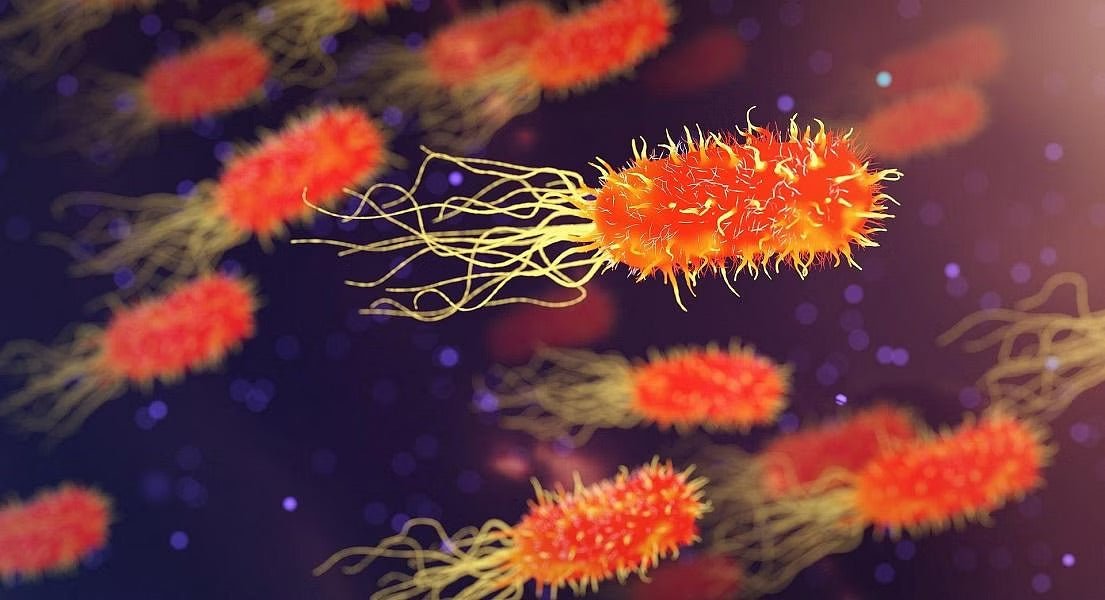The new year often brings with it the promise of a fresh start. And resolutions typically revolve around making health improvements, either through diet or lifestyle changes. One area that gets a lot of attention is ‘detox’, as there is a natural desire to want to ‘clean up’ after the excesses of the festive season.
Whilst there are many different ways to support your body’s detoxification processes, my advice is always to start with a quick lifestyle check-in to see what steps you can take to reduce your overall ‘toxic load’. In exactly the same way that the first step to dealing with financial debt would be to cut down on your spending, reducing your overall ‘toxic load’ is the non-negotiable first step to supporting your body’s detoxification processes.
Some ‘lifestyle toxins’ are easy to spot, like cigarette smoke, chemicals that leach into water from a plastic bottle, blackened edges on chargrilled meat, an overpowering synthetic home fragrance or the industrial strength oven cleaner that leaves you gasping for breath. Others however are less obvious but no less significant. And although some are not ‘toxins’ in the truest sense of the word, there are other lifestyle factors that can place a heavy burden on your body’s detoxification processes, and these need to be weeded out too, with just as much urgency as the industrial strength oven cleaner.
Ready to start weeding ‘toxins’ out of your lifestyle? Here’s some of the more and less obvious factors to consider:
Non-natural toiletries & personal care products
Non-natural cleaning products, synthetic fragrances (perfumes, air fresheners, scented candles), household furnishings (furniture, carpets, paint, curtains, upholstery, bedding, particularly flame-retardant or stain-resistant fabrics), waterproof clothing.
Household
Look out for chemicals such as parabens, phthalates, triclosan and sodium lauryl sulphate (SLS).
Food & drink
Non-organic food, caffeine, alcohol, ultra-processed foods, refined sugar, artificial sweeteners, synthetic food additives, preservatives, colourings, burnt or blackened food.

Water
Non-filtered tap water, water stored in plastic bottles.
Air quality
Smoke, cigarette smoke, industrial fumes, petrol fumes.
Cookware, utensils & food packaging
Teflon-coated non-stick pans, aluminium cookware, plastic utensils, plastic food packaging (look out for bisphenol A (BPA)), aluminium foil.
Lack of sleep
Losing sleep for even part of one night can trigger inflammation. This is significant because one of the key compounds needed for detoxification (glutathione) is also involved in keeping inflammation in check. If you’re continually triggering inflammation through lack of sleep, glutathione (the crucial compound that you need for detoxification) may become depleted. In addition, sleep is a prime time for detoxification processes to take place so you really need to protect it.

Chronic stress
Similar to lack of sleep, chronic stress often goes hand in hand with a more pro-inflammatory state. We are also more likely to reach for ‘unhealthy’ options such as sugary foods, cigarettes and alcohol during times of stress – adding extra strain on the liver’s detoxification processes. The longer term effects of chronic stress are also known to be a risk factor for an increase in fatty liver tissue or Non Alcoholic Fatty Liver Disease (NAFLD). Taking steps to address chronic stress is an essential part of supporting the body’s detoxification processes.
Overtraining
Whilst regular movement and exercise are a vital part of supporting detoxification processes, you can get too much of a good thing. Overtraining can lead to excessive production of reactive oxygen species which may deplete important detoxification compounds such as glutathione.
Sedentary lifestyle
Just as excessive exercise can be problematic for detoxification processes, so too is not getting enough. Exercise and movement help to support regular bowel elimination - a final and very important part of the detoxification process - where toxins are actually transported out of the body.
Lack of sunlight
Regular sunlight exposure not only helps to support balanced circadian rhythms and good quality sleep; it also helps us to produce vitamin D. Vitamin D is an important nutrient for inflammation balance and robust levels are also linked to the crucially important detoxification compound called glutathione.

Time to widen your thinking on what a toxic lifestyle really means…
Your body’s detoxification processes are working 24/7 and your health will be eternally grateful for any steps you can take to lessen the ‘toxic load’. The takeaway here is that it’s important to widen your thinking on what a ‘toxic lifestyle’ really means – and to know that some ‘toxins’ are not quite as obvious as others. Once you become more aware, it’s easier then to start taking action on the steps that are most relevant to you. Some might be ‘quick-wins’, and others will take more time. The above list may at first seem overwhelming but you don’t need to do everything – one small step at a time will do. And know that no matter how small, every tiny action you take to reduce the overall burden on your detoxification processes is incredibly worthwhile.
Blog provided by Nutri Advanced.
Ready to take your weight loss to the next level? In Week 19 of our Statera 20-Week Weight Loss Programme, exercise plays a crucial role in weight loss, boosting metabolism and supporting sustainable fat reduction.



